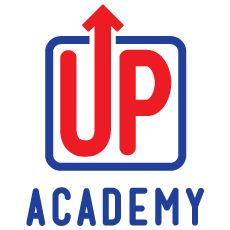Doing Nothing is Doing Something. Do Something.
The events of the last several days have created an atmosphere in my mind which makes it difficult to work or concentrate. I am concerned about our country and our world, there are protests and riots here in the US. Other countries are protesting America’s human rights policies towards their own people. This country has hit a tipping point, where too many people are disadvantaged and not heard, too many people are unemployed and scared, too many people are angry and they are taking to the streets. Over 100,000 people have died, there are fires in the streets and people continue to be injured, killed and arrested.
I am a parent, an educator, and a white American who is part of the problem. It is time to do something differently. I never would have defined myself as part of the problem, I do not think I am racist, I enjoy the richness of different people and different cultures and I work to understand the stories of others. But that is not enough, adding more social justice curriculum to our schools and teaching history from concepts and different perspectives is a start, but how do we really make a difference that will make the future different than this recurring past?
As a part of the problem, I had never talked to my kids about race. My thought was that if they don’t see color, if that’s not what they notice about others, they won’t think of all the reasons why race matters. They will just see people. And they do just see people, their best friends are brown, their preschool was run by a black man. In the community where we live and the friends we have, we are often the minority in the room, as white Americans, frequently we don’t even speak the dominant language in the gathering. In fact, at one of my children’s first preschool field trips I was talking with other families and they were shocked as they realized I was American, we may have been the only family who was born in the US that year at school. It was Japanese families, Chinese families, Israeli families, French families, all together looking for a place for their kids to learn and play together. This is the future I want for my kids, to just see other kids, to just see other people and their capabilities, not their colors, or their abilities.
In my own life it wasn’t until college that I became more aware of the struggles of different races. I grew up in an affluent white suburb in the midwest. There was one black student in school and he was a foster child. My favorite show was Soul Train and as a dancer, my favorite company was Alvin Ailey. I didn’t know until someone pointed it out in my 20s that the show I danced around my living room to, my favorite dance show, was all African-American - Soul Train. I didn’t know the history of Alvin Ailey or notice that the dance company was an all black company until I was in New York literally studying at the school with the company. It wasn’t until someone told me I would never join the company because I was white that I learned more. I honestly never noticed the color of their skin, but their movement and connection to the music was unrivaled and that was what I wanted to learn.
But not to see colors means not seeing history and understanding struggles, it misses a whole aspect of the richness, and madness, of being human. If my children don’t see color and they miss this background of history and connection, then color will eventually come to find them and teach them. Likely, the lessons won’t be of kindness and compassion, they will be of anger, repression, torture, and voices that are muzzled. While that is part of the story, now is the chance to create a different storyline for the future, now is the time to listen, to understand, to educate and to change so the future doesn’t repeat the past again.
As a parent and educator, I can do this through ongoing deep conversations with my children and students, and curriculum that underlines social justice. So that we can all work together, play together and grow together, not despite our different colors and histories, but embracing how they make us better and stronger together.
We will do better.
